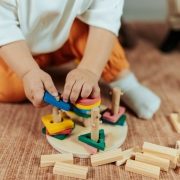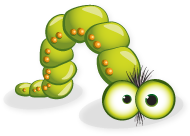The Role of Play in Building Early Math Skills
Early math skills are crucial for a child’s development. These skills form the foundation for more complex mathematical concepts that children will encounter as they grow. One of the most effective ways to build these early math skills is through play. Play-based learning environments naturally integrate mathematical thinking, making math a fun and engaging part of a child’s day.
Through play, children can explore and understand mathematical concepts like counting, spatial relationships, and problem-solving. Activities such as building with blocks, playing board games, and solving puzzles introduce children to numbers and shapes in a way that feels enjoyable and intuitive. These playful interactions encourage children to think mathematically without the pressure of formal instruction.
Educators play a significant role in facilitating math learning through play. By creating math-rich environments and guiding children through playful activities, educators help children discover the joy of learning math. They use intentional planning to weave mathematical concepts into everyday play, making math accessible and fun for young learners. Through this approach, children develop a strong foundation in math that will support their future learning experiences.
Understanding the Connection Between Play and Math Skills
How Play Encourages Mathematical Thinking
Play is a powerful tool for encouraging mathematical thinking in young children. When children engage in play, they naturally encounter various mathematical concepts. For instance, when building with blocks, they start to understand shapes, sizes, and spatial relationships. Sorting and arranging toys introduce basic notions of classification and order.
These playful activities prompt children to ask questions, make predictions, and solve problems—all key aspects of mathematical thinking. When children play store, they use pretend money, which helps them grasp the idea of numbers and value. Everyday play scenarios give children the chance to practice counting, measure objects, and recognise patterns without realising they are learning math.
The Importance of Early Math Skills
Early math skills are essential for children’s cognitive development and future academic success. Proficiency in basic math concepts lays the groundwork for more advanced topics like algebra and geometry. Strong early math skills also correlate with better problem-solving abilities and logical thinking.
Children with a solid foundation in early math are better prepared for the structured learning environments they will encounter at school. These skills help them understand the world around them and foster their curiosity and creativity. Building these skills through play makes learning enjoyable and effective, providing a positive environment for children to thrive.
Types of Play that Promote Math Learning
Block Play and Spatial Awareness
Block play is one of the best activities for developing spatial awareness and understanding geometric principles. When children stack, sort, and arrange blocks, they learn about shapes, symmetry, and balance. They also enhance their fine motor skills and hand-eye coordination. Concepts such as height, width, and depth become tangible and understandable.
Children intuitively learn to compare and contrast sizes, create patterns, and understand proportions through block play. These activities promote critical thinking and problem-solving as kids figure out how to build stable structures or replicate a design. Block play turns abstract concepts into concrete experiences, aiding in the development of early math skills.
Board Games and Counting Skills
Board games offer children a fun and interactive way to develop counting skills. Games that require moving pieces a certain number of spaces, such as Snakes and Ladders, help children practice counting forwards and backwards. These games also introduce them to the concept of numbers, sequences, and probability.
Playing board games encourages social skills like taking turns, following rules, and fair play. These interactions add an element of excitement to learning math, making it a shared experience. By regularly engaging in board games, children build their numerical understanding and improve their ability to perform basic calculations.
Puzzle Play and Problem-Solving
Puzzles are excellent for fostering problem-solving skills and logical thinking. When children fit pieces together, they learn about shapes, sizes, and how individual parts create a whole. Puzzles challenge children to think critically and develop strategies to achieve their goals.
Completing puzzles helps improve memory, attention to detail, and spatial reasoning. It also boosts children’s persistence and patience, as they work through trial and error to find the correct solution. By integrating puzzles into playtime, children can enhance their mathematical thinking in a relaxed and enjoyable setting.
Practical Activities to Foster Math Skills Through Play
Setting Up Math-Rich Play Environments
Creating a math-rich play environment is essential for fostering early math skills. Start by incorporating various materials that promote mathematical exploration. Have a diverse range of blocks, measuring tools, and shape sorters available for children to use. This variety provides multiple opportunities for children to encounter and manipulate different mathematical concepts.
Arrange play spaces in a way that invites children to engage with math. A cosy corner with puzzles or a designated area for board games can spark curiosity and interest. Clearly labelled containers and shelves also help children learn about organisation and categorisation. These small touches make it easier for children to see the connections between their play and mathematical ideas.
Using Everyday Objects for Math Play
Everyday objects can be powerful tools for introducing math concepts. Items such as buttons, beads, and sticks can be used to teach counting, sorting, and patterns. For example, children can create sequences with beads or count buttons during clean-up time. These activities show that math is all around us and can be part of daily routines.
Cooking activities also offer excellent opportunities for math learning. Children can measure ingredients, observe changes in quantities, and understand fractions and ratios. Even simple tasks like setting the table can become math lessons, with children sorting utensils and counting plates. By utilising everyday objects, math becomes a natural and engaging part of playtime.
Encouraging Cooperative Math Games
Cooperative math games allow children to work together while practising their math skills. Games like “math bingo” or a scavenger hunt with number clues can make learning fun and interactive. These games encourage teamwork and communication, as children discuss strategies and solve problems together.
Role-playing games can also incorporate math in a playful way. Setting up a pretend shop, complete with price tags and play money, helps children understand the concept of currency and simple addition and subtraction. By engaging in these cooperative activities, children develop their math skills and build social connections and teamwork abilities.
Conclusion
Fostering early math skills through play is a powerful and effective approach. By integrating math into everyday activities and creating engaging play environments, we help children see math as a fun and integral part of life. Through playful interactions with blocks, puzzles, and cooperative games, children naturally develop the foundational skills needed for future mathematical learning.
Educators play a pivotal role in this process. Their intentional planning, thoughtful guidance, and encouragement create a supportive atmosphere where children thrive. By celebrating each child’s unique progress and achievements, we build their confidence and enthusiasm for math.
At Eskay Kids, we believe in the power of play-based learning in Springfield to nurture early math skills. Our carefully designed programs support children’s growth and curiosity. Discover how our play-based approach can benefit your child’s development. Join us at Eskay Kids and let’s make learning math a joyful experience together. Contact us today to learn more about our offerings.




